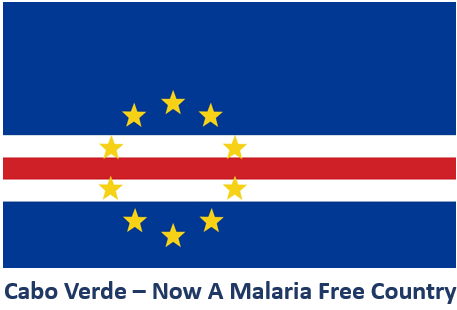No more malaria in Cape Verde
Cabo Verde (Cape Verde) has achieved a remarkable milestone in global health as the World Health Organization (WHO) certifies it as a malaria-free country. This prestigious certification places Cabo Verde among the ranks of only 43 countries and 1 territory that have received this recognition from WHO.
Being the third country in the WHO African region to achieve this feat, Cabo Verde joins the esteemed company of Mauritius and Algeria, who were certified in 1973 and 2019 respectively. It is worth noting that Africa bears the highest burden of malaria, accounting for approximately 95% of global malaria cases and 96% of related deaths in 2021.
The certification of malaria elimination in Cabo Verde will have far-reaching positive impacts. The systems and structures established to combat malaria will now be utilized to tackle other mosquito-borne diseases like dengue fever. Additionally, travelers from non-malaria endemic regions can now visit the beautiful islands of Cabo Verde without the fear of contracting local malaria infections or the need for preventive treatment measures. This development has the potential to attract more visitors and stimulate socio-economic activities in a country where tourism contributes significantly to the GDP.
Dr. Tedros Adhanom Ghebreyesus, the Director-General of WHO, commended the government and people of Cabo Verde for their unwavering commitment and resilience in their journey towards malaria elimination. He emphasized that the certification is a testament to the effectiveness of strategic public health planning, collaboration, and sustained efforts to protect and promote health. Cabo Verde’s success serves as a beacon of hope in the global fight against malaria, inspiring us to believe that with existing tools and the promise of new ones, including vaccines, we can dare to dream of a malaria-free world.
The official recognition of a country’s malaria-free status, known as certification of malaria elimination, holds immense significance. It has been a long and arduous journey for Cabo Verde to reach this point. This achievement not only enhances the country’s external image but also has positive implications for tourism and the overall well-being of its people. The Prime Minister of Cabo Verde, Ulisses Correia e Silva, acknowledges the recognition as a testament to the country’s successful health system.
Cabo Verde, an archipelago consisting of 10 islands in the Central Atlantic Ocean, has faced significant challenges in combating malaria. Until the 1950s, malaria affected all the islands, with severe epidemics occurring regularly in densely populated areas. However, targeted interventions, including insecticide spraying, led to the elimination of malaria in 1967 and 1983. Unfortunately, lapses in vector control resulted in the re-emergence of the disease. Since the late 1980s, malaria has been confined to two islands, Santiago and Boa Vista, both of which have been malaria-free since 2017.
Dr Matshidiso Moeti, WHO Regional Director for Africa, commends Cabo Verde’s achievement as a beacon of hope for the African Region and beyond. It serves as a powerful example that with strong political will, effective policies, community engagement, and collaboration across sectors, malaria elimination is an attainable goal. Cabo Verde’s milestone is an inspiration for other nations to follow suit.
Cabo Verde has made significant progress in its journey towards malaria elimination. The inclusion of this objective in its national health policy in 2007 provided a boost to their efforts. A strategic malaria plan implemented from 2009 to 2013 laid the foundation for success by focusing on expanded diagnosis, early and effective treatment, and thorough reporting and investigation of all cases. To prevent imported cases from mainland Africa, international travelers and migrants were provided with free diagnosis and treatment.
In 2017, Cabo Verde turned an outbreak into an opportunity by identifying and addressing problems, resulting in zero indigenous cases for three consecutive years. Even during the ongoing COVID-19 pandemic, the country has safeguarded its progress. Efforts have been directed towards improving the quality and sustainability of vector control and malaria diagnosis, strengthening malaria surveillance at ports, airports, the capital city, and areas at risk of malaria re-establishment.
The collaboration between the Ministry of Health and various government departments, including those responsible for the environment, agriculture, transportation, and tourism, has played a crucial role in Cabo Verde’s success. The inter-ministerial commission for vector control, led by the Prime Minister, has been instrumental in the elimination efforts. The commitment of community-based organizations and NGOs, along with the collaborative effort of all stakeholders, highlights the importance of a holistic approach to public health.
As Cabo Verde celebrates this monumental achievement, the global community commends its leaders, healthcare professionals, and citizens for their unwavering dedication to eliminating malaria and creating a healthier future for everyone.




